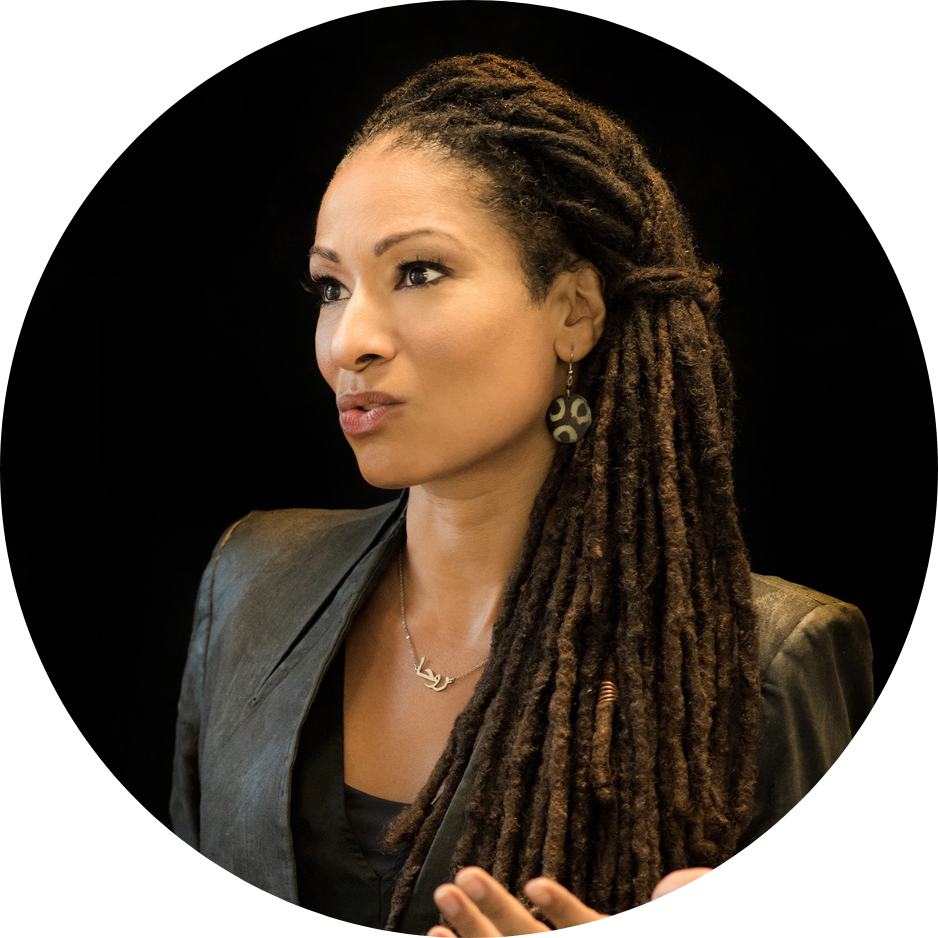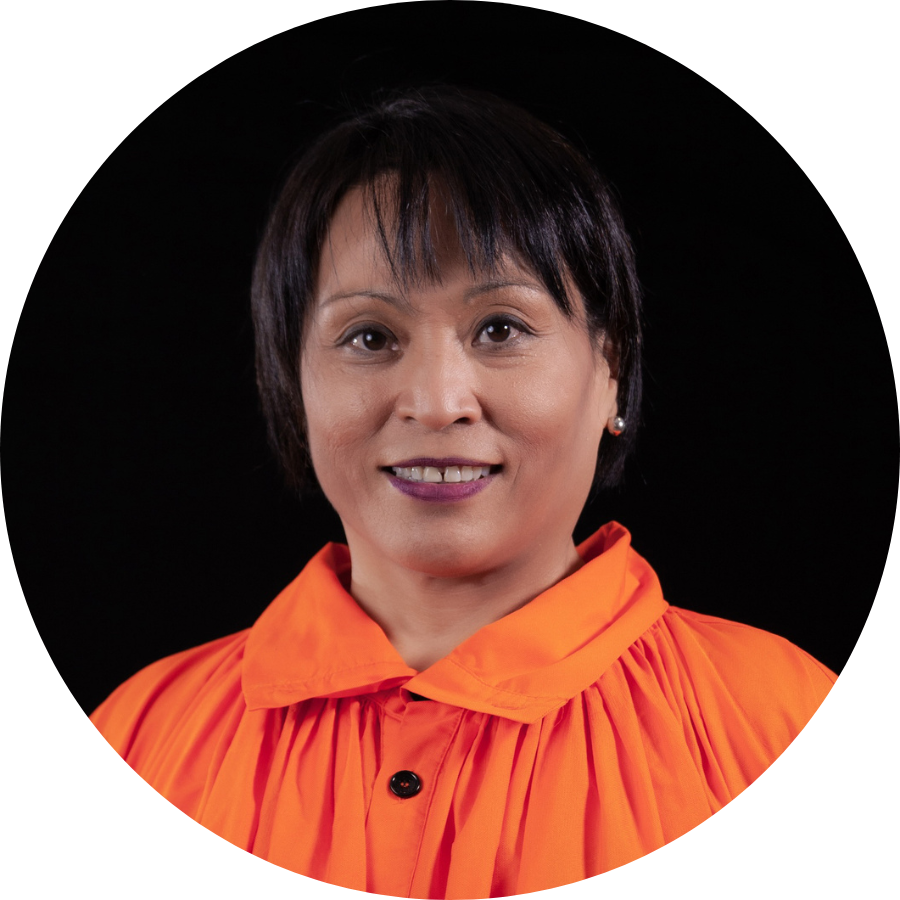

Norton Shorts for College Courses
W. W. Norton & Company inaugurates a new century of visionary independent publishing with Norton Shorts. Written by leading-edge scholars, these eye-opening books deliver bold thinking and fresh perspectives in fewer than 200 pages.
A perfect fit for college courses, each Norton Shorts title features resources to help instructors enrich course material. Browse by discipline and request a digital examination copy below.
Now Available in Paperbacks for Spring 2026 Courses
The Moral Circle
Who Matters, What Matters, and Why
by Jeff Sebo
A philosopher calls for a revolution in ethics, suggesting we expand our “moral circle” to include insects, microbes, and even AI systems.
In The Moral Circle, philosopher Jeff Sebo challenges human exceptionalism and urges us to expand our moral community to include all potentially significant beings. While humanity prioritizes its own interests, we exploit billions of animals and plan to use AI systems and other nonhumans at even greater scales in the future. Through compelling case studies—such as lawsuits over captive elephants, factory-farmed insects, and debates about sending microbes to other planets or creating virtual worlds with digital minds—Sebo explores urgent ethical questions about which nonhumans matter and what we owe them. He argues that building a better future requires shedding human exceptionalism and rethinking our responsibilities in a world transformed by human activity and technology. Ideal for courses in ethics, animal ethics, and applied moral philosophy.
KEY TOPICS ● animal welfare and exploitation; human exceptionalism; moral inclusion; future ethical dilemmas
What's Real about Race?
Untangling Science, Genetics, and Society
by Rina Bliss
Acclaimed sociologist Dr. Rina Bliss debunks society’s closely held beliefs on race, genetics, and our collective identity as a species.
In deeply researched, masterful prose, sociologist Dr. Rina Bliss guides us through the invention and evolution of the concept of race. She reveals how the myth of distinct, biological races endures in medicine, science, and social policy—warping our understanding of complex topics like intelligence, disease susceptibility, and behavior. By looking at the science behind our perceived differences, Dr. Bliss empowers readers to confront their own biases and the systems that perpetuate harmful assumptions in order to continue subjugation based on the concept of race. At a time when misinformation about our bodies and identities is dangerously prevalent, Bliss unmasks what’s truly real about race: namely, racism’s impact on our bodies and lives.
KEY TOPICS ● race; genetics; epigentics; systemic racism, social problems
Fewer Rules, Better People
The Case for Discretion
by Barry Lam
A leading public philosopher argues that the relentless expansion of rules and mandates not only constrains us but also diminishes our intelligence, corrodes our moral integrity, undermines honesty, and weakens our capacity to govern the institutions that matter most.
In Fewer Rules, Better People, philosopher Barry Lam explores the complex role of discretion in decision-making, from parenting and policing to courtroom judgments. While discretion can produce flawed and biased outcomes, Lam argues that removing it—through rigid rules or AI-based enforcement—leads to even greater injustices, such as corrupted systems, institutionalized dishonesty, and arbitrary results. Reframing debates about justice and ethics, Lam makes a compelling case for the necessity of human judgment, even in its imperfection, and warns against the dangers of “perfect,” discretion-free enforcement by technology. An excellent choice for courses in political philosophy, philosophy of law, social and political ethics, and contemporary issues in philosophy.
KEY TOPICS ● bias; rules; discretion; fairness; the role of AI in decision-making
View More Paperbacks
Explorers
A New History
by Matthew Lockwood
The impulse to seek out new worlds is universal to humanity.
In a truly inclusive account of exploration, historian Matthew Lockwood interweaves stories of famous figures—including Sacagawea, Pocahontas, and Dr. David Livingstone—with tales of individuals who are usually denied the title “explorer.” Lockwood’s new cast of adventurers features figures often excluded from Western focused narratives on the early rise of globalization. Lockwood delves into the histories of Rabban Bar Ṣawma, a Uighur monk who traversed the Middle East and Europe; Yasuke, an East African traveler to Japan during the sixteenth century; and David Dorr, a man born in slavery whose travelogues reshaped Americans’ understanding of the African continent. As an assistant professor of history at The University of Alabama, where Lockwood teaches on the Age of Exploration and Conquest, he brings critical context readers need to reevaluate their understanding of how our modern world was shaped by early explorations. This intrepid re-imagining of our global past is vital for courses in histories of Western civilization or world history; exploration and empire; and more.
KEY TOPICS ● exploration; travel and travelogues; indigenous knowledge of the environment; histories of natural science and geography; world history

Matthew Lockwood
is an assistant professor of history at the University of Alabama and the author of This Land of Promise: A History of Refugees and Exiles in Britain, To Begin the World Over Again, and The Conquest of Death. He lives in Northport, Alabama.
Offshore
Stealth Wealth and the New Colonialism
by Brooke Harrington
This eye-opening account of offshore finance reveals how a shadowy global system is fueling economic crises while also corroding democracy, capitalism, and the environment.
Sociologist Brooke Harrington trained as an offshore wealth manager then spent years immersed in tax havens around the world as part of an ethnographic study, observing and interviewing the experts who keep the secrets and protect the fortunes of the global ultra-rich. She highlights what offshore finance costs us all and how it has enabled the world’s billionaires to colonize the world. As politicians struggle to address the deepening economic and political inequality destabilizing the world, Harrington’s exposé of the offshore system helps students understand the most pressing crises of our time. This engrossing deep dive into the hidden realm of offshore finance is perfect for courses on economic sociology, globalization, and social inequality.
KEY TOPICS ● immersion ethnography; economic sociology; power elite; colonialism; tax havens; financial crimes; wealth inequality

Brooke Harrington
is a professor of economic sociology at Dartmouth College, a certified wealth manager, and an advisor to the OECD and European Parliament, among other organizations. She is the author of several books, including the best-selling Capital without Borders.
Literary Theory for Robots
How Computers Learned to Write
by Dennis Yi Tenen
In the industrial age, automation came for the shoemaker and the seamstress. Today, it has come for the writer, professor, physician, programmer, and attorney.
Chatbots are already impacting the way we read, write, and think. For better or worse, they are being used to find information, influence public opinion, diagnose illnesses, and shape political discussion online. How did we get to this point and what can we do to prepare? Literary Theory for Robots reveals the hidden history of modern machine intelligence, taking readers on a spellbinding journey from medieval Arabic philosophy to visions of a universal language, past Hollywood fiction factories and missile defense systems trained on Russian folktales. Former Microsoft engineer and professor of comparative literature Dennis Yi Tenen provides crucial context for the rapidly changing AI landscape and invites readers to consider how humans and smart technology might coexist in the future. This provocative reflection on the shared pasts of literature and computer science is essential for courses in literary theory, comparative literature, the philosophy of language, and the history of rhetoric.
KEY TOPICS ● human intelligence vs. artificial intelligence; history of machine learning; rhetorical traditions; automation; knowledge work

Dennis Yi Tenen
is an associate professor of English and comparative literature at Columbia University. Originally a software engineer at Microsoft, Tenen is now an affiliate at Columbia’s Data Science Institute. He lives in New York City.
Imagination
A Manifesto
by Ruha Benjamin
Imagination isn’t a luxury; it’s a vital resource and a powerful tool for our collective liberation.
A world without prisons? Schools that foster the genius of every child? A society where everyone has food, shelter, love? In your dreams. Exactly. Princeton professor Ruha Benjamin believes in the liberating power of the imagination. Deadly systems shaped by mass incarceration, ableism, digital surveillance, and eugenics emerged from the human imagination, but they have real-world impacts. To fight these systems and create a world that works for all of us, we will have to imagine things differently. As Benjamin shows, educators, artists, technologists, and others are experimenting with new ways of thinking and tackling seemingly intractable problems. Visionary and practical, Imagination: A Manifesto is an inspired selection for courses in inequality, race, technology, and sociology of education.
KEY TOPICS ● schooling and IQ; whiteness of the curriculum; play and childhood; eugenics; technology; inclusive worldbuilding

Ruha Benjamin
is a professor of African American studies and the founder of the Ida B. Wells Just Data Lab at Princeton University. The author of the Stowe Prize-winning Viral Justice, as well as Race After Technology and People’s Science, Benjamin lives in Princeton, New Jersey.
Wild Girls
How the Outdoors Shaped the Women Who Challenged a Nation
by Tiya Miles
An award-winning historian shows how girls who found self-understanding in the natural world became women who changed America.
Harriet Tubman, forced to labor outdoors on a Maryland plantation, learned a terrain for escape. Louisa May Alcott ran wild, eluding gendered expectations in nineteenth-century New England. The Indigenous women’s basketball team from Fort Shaw, Montana, regained a sense of pride in physical prowess as they trounced the white teams of the 1904 World’s Fair. For the girls at the center of this book, woods, prairies, rivers, ball courts, and streets provided not just escape from degrees of servitude, but also space to envision new spheres of action. Lyrically written and full of archival discoveries, this book evokes rich landscapes and the rebellious spirit of the girls who roamed them—a perfect fit for courses in U.S. women’s or environmental history.
KEY TOPICS ● gender and the domestic sphere; Indigenous knowledge; history of childhood and adolescence; history of sport; human/nature relationships

Tiya Miles
is the Michael Garvey Professor of History at Harvard University, the author of five prize-winning works on the history of slavery and early American race relations, and a 2011 MacArthur Fellowship recipient. She founded and was the director of the Michigan-based ECO Girls program, and she is the author of the National Book Award-winning, New York Times best-selling All That She Carried. She lives in Cambridge, Massachusetts.
Against Technoableism
Rethinking Who Needs Improvement
by Ashley Shew
A bioethicist explodes what we think we know about disability and argues that disabled people are the real experts when it comes to technology and disability.
When bioethicist Ashley Shew became a self-described “hard-of-hearing chemobrained amputee with Crohn’s disease and tinnitus,” there was no returning to “normal.” Suddenly, well-meaning people called her an “inspiration” while grocery shopping or viewed her as a needy recipient of technological wizardry. Why do abled people frame disability as an individual problem that calls for technological solutions, rather than a social one? In a warm, spirited voice and vibrant prose, Shew argues that disabilities should be viewed not as liabilities but as skill sets enabling all of us to navigate a challenging world. This short, stirring book is ideal for courses in disability studies, philosophy of technology, bioethics, and philosophy or sociology of disability.
KEY TOPICS ● identity-first vs. person-first language; disability tropes; eugenics; medical vs. social models of disability; neurodivergence

Ashley Shew
is an associate professor of science, technology, and society at Virginia Tech and specializes in disability studies and technology ethics. Her books include Against Technoableism, Animal Constructions and Technological Knowledge, and Spaces for the Future (coedited). She lives in Blacksburg, Virginia.
New Hardcovers Available for Spring 2026
Gather
Black Food, Nourishment, and the Art of Togetherness
By Ashanté M. Reese
In Gather, anthropologist Ashanté M. Reese argues for a new vision of food justice that centers the resilience of Black communities and argues that community nourishment deserves as much consideration as individual health. Highlighting four spaces of gathering—gardens, family reunions, repasts, and protests—Reese offers rich, on-the-ground studies of the places and people who make up the food justice movement. From Black church networks and community farms to student protests, these studies illuminate ways we can challenge structures of power and nourish ourselves, body and soul. In a world of social isolation and unequal food systems, Gather offers a compelling argument for the beauty and power of togetherness.
KEY TOPICS ● food justice; Black food culture; collective action; social movements; community solidarity; anti-Black racism; self-reliance
The Racial Wealth Gap
A Brief History
By Mehrsa Baradaran
A brief and compelling read, The Racial Wealth Gap offers a devastating analysis of one of America’s most pressing systemic issues.
Why has the racial wealth gap between the median white households and median Black households remained stagnant over the past century, never narrowing below six to one? Leading expert on race and financial equality Mehrsa Baradaran attempts to answer this question in this sweeping yet accessible history. She shows how decades of the laws rooted in white supremacy—from slavery and the broken Reconstruction-era promise of “40 acres and a mule,” to the racist policies of the Jim Crow and New Deal eras—have restricted Black access to capital, credit, homeownership, and other mechanisms of wealth creation while subsidizing the rising economic fortunes of white families.
In The Racial Wealth Gap, Baradaran outlines two tectonic forces that have driven apart the economic fortunes of white and Black families: wealth creation for white Americans, who have been systematically receiving financial subsidies in the century and a half since emancipation, and wealth destruction for Black Americans—either by vigilante violence or by official means, such as allowing Black banks to collapse or building highways through segregated Black communities. These forces, combined with the racist notion that Black communities fail to rise because of their own moral, intellectual, or economic shortcomings, have kept Black families behind their white counterparts, despite decades of civil rights activism and national economic growth. Correcting this deep injustice, the author suggests in the final pages, can only be achieved through reparations.
KEY TOPICS ● racial wealth gap; systemic racism; segregation; redlining; racial violence
View More Hardcovers
The Trafficker Next Door
How Household Employers Exploit Domestic Workers
by Rhacel Salazar Parreñas
A renowned sociologist examines the pernicious societal forces that lead employers to exploit vulnerable domestic workers. The phrase “human trafficking” often conjures nightmarish images of sexual exploitation, but Rhacel Salazar Parreñas reveals that the vast majority of trafficking victims are domestic workers who suffer abuse not at the hands of shadowy crime lords but rather “ordinary” people. Drawing on twenty years of groundbreaking research across three continents, Parreñas exposes the grim realities faced by migrant workers ensnared in forced labor due to poverty and debt bondage. She uncovers how entrenched social and legal norms, coupled with a pernicious “employer savior complex,” foster a troubling sense of ownership among employers over “their” domestic workers. Parreñas’s urgent narrative challenges readers to confront uncomfortable truths about everyday household arrangements and calls for justice and fair treatment for all workers. The Trafficker Next Door will be great for courses on social problems and social inequality as well as sociology courses on work, gender, and globalization.
KEY TOPICS ● human trafficking; forced labor; migrant workers; care work; ethnography; globalization

Rhacel Salazar Parreñas
is the Doris Stevens Professor in Women’s Studies and professor of sociology and gender and sexuality studies at Princeton University. The award-winning author of three previous books on labor, exploitation, and human trafficking, she lives in Princeton, New Jersey.
Sex Beyond "Yes"
Pleasure and Agency for Everyone
by Quill R Kukla
In Sex Beyond “Yes”, philosopher Quill R. Kukla challenges the idea that consent alone can define ethical sex, arguing that this binary framework oversimplifies the complex realities of sexual agency. They examine scenarios shaped by intoxication, aging, social pressure, and power imbalances—ranging from sex work and dementia to kink and everyday encounters—to show that agency often goes beyond a simple “yes” or “no.” Kukla calls for a more nuanced, human-centered approach to sexual ethics, one grounded in honest communication, mutual respect, and the often messy dynamics of intimacy and pleasure. With a mix of sharp critique and deep empathy, they offer a bold rethinking of what it means to have ethical, fulfilling sex. This Norton Short would be well suited for courses such as Philosophy of Love and Sex, Ethics of Intimacy, and Gender, Sexuality, and Philosophy.
KEY TOPICS ● Philosophy of love and sex; sexual ethics; sexual agency; Consent; pleasure, power, and social dynamics

Quill R Kukla
lives in Washington, DC, and Berlin. They are Professor of Philosophy and Disability Studies at Georgetown University, and the Editor-in-Chief of the Kennedy Institute of Ethics Journal. They are also an amateur competitive boxer and powerlifter, the parent of a young adult, and the devoted caretaker of a corgi and two cats. This is their fourth book.
Fear Less
Poetry in Perilous Times
by Tracy K Smith
The Pulitzer Prize–winning poet reveals how poetry is a powerful tool of connection and understanding in a fractured world.
Drawing on deep passion and personal experience, former US Poet Laureate Tracy K. Smith demystifies the art form that has too often been mischaracterized as “inaccessible,” “irrelevant,” or “intimidating.” She argues that poetry is rooted in fundamentally human qualities innate to our capacities to love, dream, question, and engage across diverse cultures and backgrounds, and she shows how reading and writing poetry can allow us to confront uncertainty and loss, build connections with strangers, and better understand ourselves. Grounding readers in the technical elements of the craft, Smith provides in-depth analysis of her own creative process as well as close readings of works by contemporary poets such as Joy Harjo, Danez Smith, and Francisco Márquez alongside classic poems by Dickinson, Keats, Millay, and others. An essential text for courses on poetry, composition, and literary criticism, Fear Less is a warm invitation to find meaning, consolation, and hope through poems.
KEY TOPICS ● poetry; literary criticism; listening; community, compassion; grief and loss

Tracy K Smith
is the Boylston Professor of Rhetoric and Oratory at Harvard University. She served as the 22nd Poet Laureate of the United States and is the author of five poetry collections, including the Pulitzer Prize–winning Life on Mars.
Titles by Discipline
Receive Updates
Upcoming Norton Shorts Online Events

Image Credits: (Baradaran) Mehrsa Baradaran; (Benjamin) Cyndi Shattuck; (Bliss) Cyndi Shattuck; (Harrington) Dartmouth / Eli Burakian; (Kukla) Charlotte Bröcker; (Lam) Melissa Surprise, Surprise Photography; (Lockwood) Matthew Lockwood; (Miles) Stephanie Mitchell; (Reese) Michael T. Davis Photography; (Parreñas) Carolina Ramirez Paez; (Sebo) Kate Reeder; (Shew) EHB Photography; (Smith) Andrew Kelly; (Tenen) Dennis Yi Tenen
Copyright © W. W. Norton & Company, Inc. 2026

























![Explore all [DISCIPLINE] titles](https://client-data.knak.io/production/email_assets/633dac4655ece/Kfkh4zDQtqhIwqOXNa7ERyoVwMUNKFeYQ6KOTIa2.png?utm_source=landing-page:6942dff917e34)
![Watch [DISCIPLINE] online events](https://client-data.knak.io/production/email_assets/633dac4655ece/CxCTpzIUGYDJRIMl7C7WinG1GujAz1e3TJRcntap.png?utm_source=landing-page:6942dff917e34)


